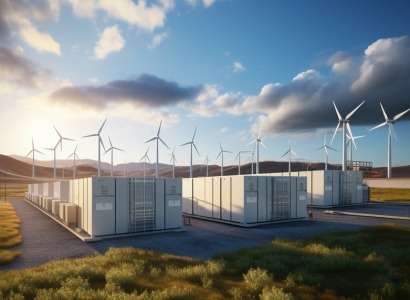
Modeling the GB power system in 2035, LCP Delta's analysis shows that with the expected levels of renewable deployment in the UK then the energy system could be producing excess renewable and nuclear energy during up to 64% of the hours, a marked increase from the 14% of hours in 2023. However, these periods of excess renewable energy will be countered by periods of shortfalls. Of the total GB energy shortfall/excess periods in 2035, over 50% of these events will last more than 24 hours, and over 25% lasting more than 48 hours.
To plug such gaps where renewable energy output is low and causing a shortfall in generation, the GB power system will need technologies that are able to flex their demand and supply over extended periods, often in excess of 12 hours – far longer than current battery storage capabilities. This service is likely to include technologies such as interconnectors which can import and export excess renewable energy, hydrogen and LDES such as pumped-hydro or liquid air.
Investment in LDES to provide this flexibility could deliver significant savings, with LCP Delta's analysis showing the development and deployment of 20GW of LDES by 2050 could result in £24bn in savings in the power sector system costs between 2030 and 2050. The cost savings come as a result of less investment required in additional excess offshore wind, where the total GW capacity would need to go further than current estimates, without LDES in place. LDES will also support the overall ambition to decarbonise the power network, with 12GW of deployed LDES reducing carbon emissions by 10-28%, depending on their level of use.
Commenting on the role of LDES in a future decarbonised power system, George Martin of LCP Delta said, "Long duration energy storage is going to be fundamental in a wind dominated energy system like in Britain. There are going to be periods where wind output is low and therefore doesn't provide the necessary energy generation – so storing excess power from high wind periods for later use will be essential. Deploying these assets typically have considerable lead times and are capital intensive, so it is important that the Government provides investors with clear opportunities and provide financing solutions to attract sufficient investment – something that has not been available in GB until now.
"Today's signal from Government will be a welcome one to the industry and investors by outlining their intention to provide a policy framework for LDES through a cap and floor mechanism. A cap and floor mechanism can provide revenue certainty for investors which will hopefully enable them to overcome the investment challenges seen for these technologies under the existing market frameworks. It is important that off the back of today's direction from Government, further progress is made in developing the policy to make investment in LDES appealing to investors.
"LDES should prove appealing to investors with opportunities to stack revenues across various markets including wholesale, balancing, stability services and the capacity market, with longer durations increasing revenues particularly in the more stable and less risky wholesale and capacity markets. We also see less risk of cannibalisation across LDES assets, in fact, the more assets you add to the system, the better it becomes particularly for longer durations."

